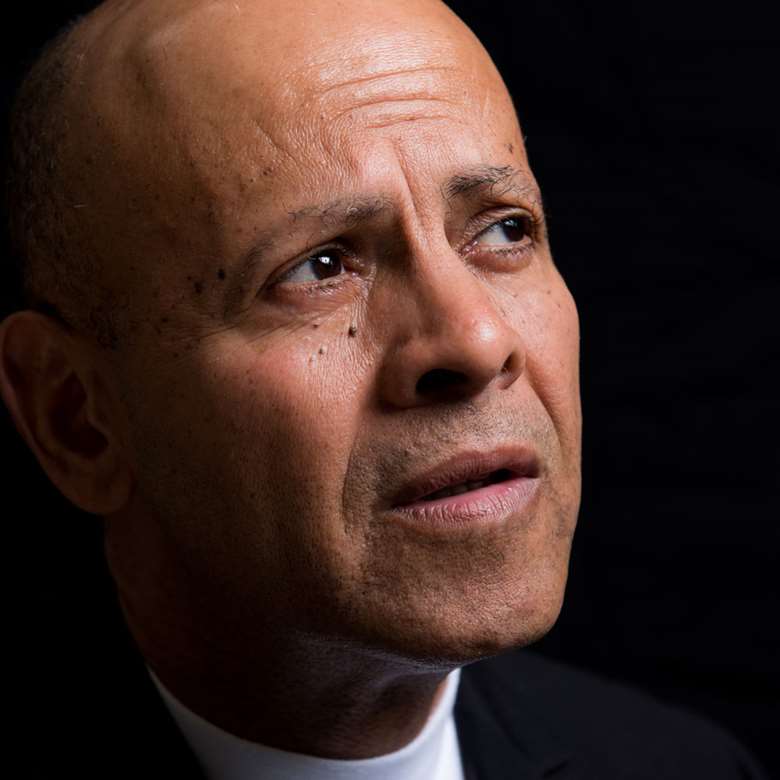Remembering Giovanni Bottesini
Wednesday, January 12, 2022
Leon Bosch celebrates the bicentenary of his fellow double bassist

Giovanni Bottesini (December 22, 1821 – July 7, 1889) was undoubtedly the most important figure in the history of the double bass, and the first virtuoso to achieve international fame on this unwieldy instrument.
He astonished everyone who heard him, and accounts of his playing abound in superlatives, to the extent that he was acclaimed as the ‘Paganini of the double bass’.
But his accomplishments transcend the double bass. Bottesini excelled in every aspect of his art; in addition to his extraordinary virtuosity on the double bass, he was also a respected conductor and a prolific composer.
This year, the bicentennial anniversary of his birth, offers the perfect opportunity to revisit his legacy.
His output as a composer exceeds 250 works, including 48 compositions for double bass, other instrumental music for a variety of instruments, ballet and symphonic music, vocal music, chamber music, 14 operas, a Messa da Requiem composed to commemorate the death of his brother Luigi, and the devotional oratorio The Garden of Olivet, written for the Norwich Festival.
Bottesini’s revolutionary influence on the technique of the instrument was expressed through his many compositions, and the publication of a Complete Method for Double Bass in which he outlines his distinctive approach; and in a succinct preface he articulates this enduring ideal: 'Truth for science – Beauty for art – Usefulness for the pupil.’
Bottesini’s reputation as a conductor still rests on one illustrious achievement: the fact that he conducted the premiere of Verdi’s Aida in Cairo, in 1871. But he commanded an extensive repertoire, and held prestigious conducting positions, including in Paris, Palermo, Cairo, Buenos Aires, Aix-les-Bains, Mexico City, Barcelona, Madrid, Naples, Turin, and Venice; he also conducted at the Covent Garden Promenade Concerts in London, the forerunner of what later became the BBC Proms.
Bottesini was born into a musical family in Crema, near Cremona. His father Pietro was an influential local clarinettist and composer, and his uncle, Carlo Cogliati, started teaching Bottesini the violin at the age of four. But Bottesini also studied the piano, sang solos in the choir, and played the kettle drums.
In 1835 he won a scholarship to the Milan Conservatoire to study the double bass. His progress was extraordinarily rapid, and he left the Conservatoire in 1839, three years earlier than was traditional, to concentrate on composition, to which he felt irresistibly drawn. Bottesini did not forsake the double bass, however: with the help of a grant from the conservatoire and a loan from a relative, he bought the legendary Testore double bass that would become his partner for life.
His first public recital in Crema, in 1840, led to performances around Italy and in Vienna, but it was his engagement as principal double bass in the Italian Opera Company in 1846/47 for a tour to Cuba that set him on the path to stardom.
The compelling virtuosity and musicianship of his solo performances during the intervals of opera performances endeared him to Cuban society, and subsequently also in the United States of America, where his solo performances were so eagerly anticipated that they often ensured full houses for the opera performances.
At a time when opera dominated musical expression in Italy, Bottesini pursued a passionate interest in chamber music. In London he performed string quintets by George Onslow, Hummel’s Piano Quintet and Septet, Schubert’s Octet and ‘Trout’ Quintet, and Beethoven’s Septet.
And to help promote the cause of the string quartet, Bottesini co-founded the Società del Quartetto in Milano in 1861, and the Società del Quartetto in Naples in 1862. He also composed six string quartets (No 3 in D won the Basevi prize in Florence) and would often play the viola part in these himself, on his beloved Gagliano viola.
He also wrote four string quintets: one with double bass, one with two cellos, and two with two violas. Bottesini’s quartets are vivacious works, stylistically reminiscent of Haydn, Beethoven, and Mendelssohn; they demonstrate complete mastery of the form. The quintets, with the addition of just one more instrument, stunningly magnify Bottesini’s creative flair.
This delightful music has yet to be fully embraced, though my chamber ensemble I Musicanti has recorded three of the string quintets, two of which are world-premiere recordings.
And, to underscore my lifelong affinity with the music of the man who inspired my own musical mission, I have recorded the third and final instalment of my ‘Virtuoso Double Bass – Bottesini’ series, with my duo partner Rebeca Omordia.
Bottesini earned and spent vast sums, indulged a passion for gambling, gave generously to the poor and maintained homes in Cairo and Italy. He died virtually penniless, of cirrhosis, shortly after taking up the position of Director of the Conservatoire in Parma, on the recommendation of his friend, Giuseppe Verdi, who wrote: ‘The loss of this illustrious artist is a calamity for art and I feel the deepest pain from it.’







